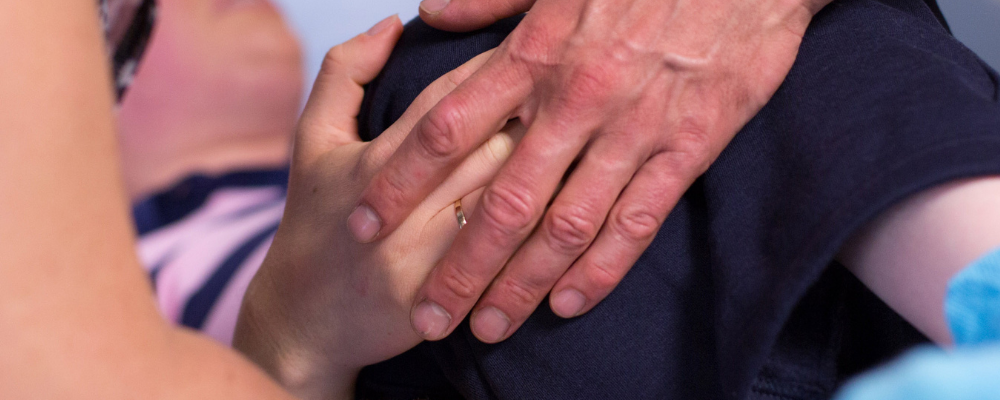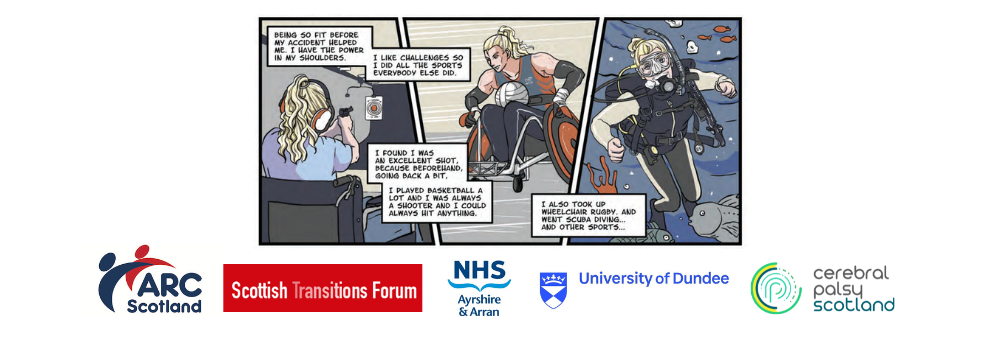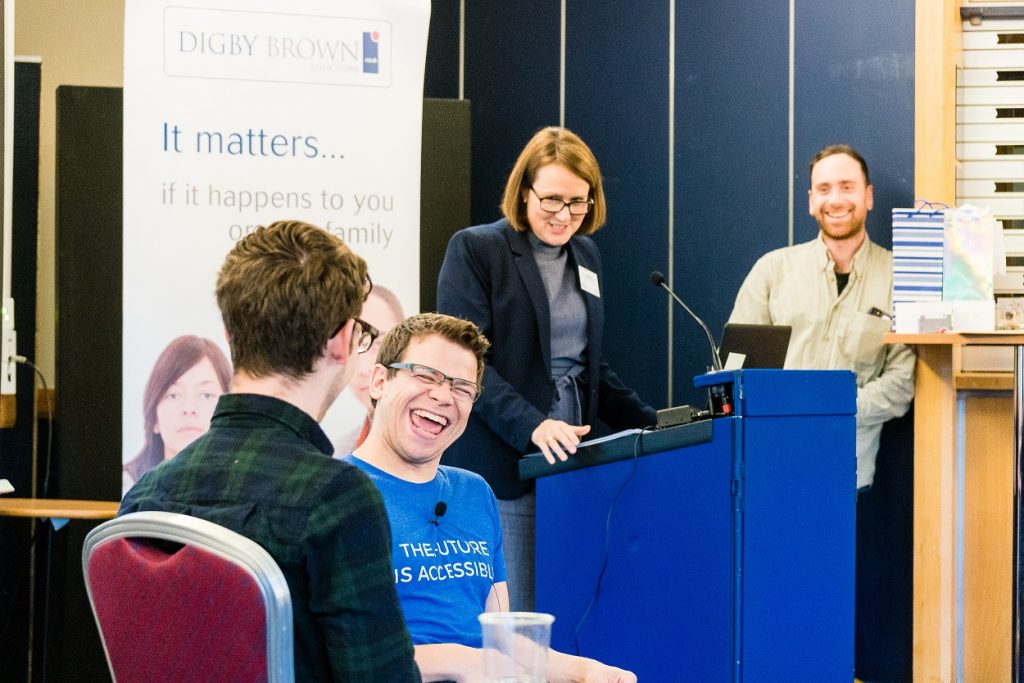How we’ve made a difference
To coincide with World Cerebral Palsy Day on 6 October 2022, we have published our Annual Review, setting out how we have supported people with cerebral palsy and their families over 2021-2022.
Read our Annual Review 2021-2022
Between April 2021 – March 2022 we provided specialist therapy to 140 people with cerebral palsy and with a total of 701 individual therapy sessions for children and adults. We also ran two therapy-led groups for primary-aged children.
Recognising that cerebral palsy can impact mental health as well as physical health, we also provided 21 one-to-one sessions with a Clinical Psychologist to support people’s overall wellbeing.
Sharing information has been an important part of our work and has continued throughout the year. Our website, regular newsletters and social media have kept people updated on news and services relevant to the CP community and our virtual conference in October 2021 allowed the cerebral palsy community to share information and experience.
Through our campaigning, we have also worked hard to keep the needs of people with cerebral palsy at the forefront of the minds of statutory service providers and policy makers and continued to play a leading role in policy development.
Developing neurology specific principles of transition
Cerebral Palsy Scotland has worked in partnership with NHS Ayrshire and Arran, ARC Scotland and the University of Dundee to complete the first phase of a bigger project to develop neurology specific principles of good transition.
The project is funded by the Scottish Government through the Neurological Care and Support: A Framework for Action programme.
What does ‘transition’ mean?
ARC Scotland describes transition as, “not a single event but a process that unfolds over several years and involves significant emotional, physical, intellectual and psychological changes”. Examples could include: moving from child to adult health services, moving school or house, or starting a job.
Successful transition is dependent on a wide range of factors including: clarity of expectations; appropriate support and resources; sufficient planning; clarity of accountability; knowledge and skills; and capacity to plan for change and emotional and physical well-being.
Earlier research confirms that well supported transitions can lead to positive outcomes, inclusion, and a potential reduction in the long term use of health and social care services.
Why develop a neurology specific set of principles of transition?
Disease specific models of transition, such as epilepsy and diabetes, are also emerging and are aimed predominantly at transition from adolescence into adulthood. Such models, with a strong focus on the medical condition often fail to acknowledge concepts such as the construction or reconstruction of a self-identity. For those who develop a neurological condition in adulthood there is currently a lack of understanding of how transitions are understood and experienced. This is confounded by a lack of evidence to inform the nature of and the effectiveness of interventions used in practice to support positive transition experiences.
Development of a neurology specific set of principles, incorporating illness experience; developmental and lifespan transitions; and social and cultural transitions, embedded within a good practice framework could be applicable to people living with neurological conditions across all aspects of transition.
This could have significant and far reaching consequences for people living with a neurological condition, such as cerebral palsy, while facilitating working with key partners across sectors.
The development of generic pan-neurological principles of good transition across the lifespan will enable the better co-ordination of services that can address the complete medical, psychosocial, emotional and vocational needs of people with complex lifelong neurological conditions to enable the delivery of personalised care that is rights based and takes account of people’s experiences and choices.
Find out more
You can read the findings from the first phase of the project.
A comic version of the findings of the research are also available.
Shape the new National Care Service by joining Lived Experience Experts Panel
You can help shape the new National Care Service in Scotland and represent people with cerebral palsy by joining the Scottish Government’s new Lived Experience Experts Panel.
Following the introduction of the National Care Service (Scotland) Bill to the Scottish Parliament on 20 June 2022, the Scottish Government is now developing a new National Care Service (NCS) in a bid to achieve changes to the system of community health and social care in Scotland.
The Scottish Government have committed to establishing a functioning National Care Service by 2026.
As part of this process, the Scottish Government wants to co-design the new National Care Service by working alongside the people who use and deliver health and social care services, and the organisations which represent them.
Join the Lived Experience Experts Panel
Applications are now open to take part in the Lived Experience Experts Panel. This is open to anyone living in Scotland who has views on how the future NCS should look.
The Lived Experience Experts Panel is a group of people who will help to design the NCS by taking part in different kinds of research and design activities, including:
- surveys
- being interviewed
- helping come up with ideas about what changes the Scottish Government might make
- helping the Government understand what their evidence is telling them
- helping the Government understand if the suggestions made will bring about the changes needed within health and social care that people have asked for
How to apply
You can apply to join the Lived Experience Experts Panel online on the Scottish Government website.
Register for Annual Conference 2022
Register for Cerebral Palsy Scotland’s annual conference, taking place on 6 October in Hampden Park, Glasgow.




